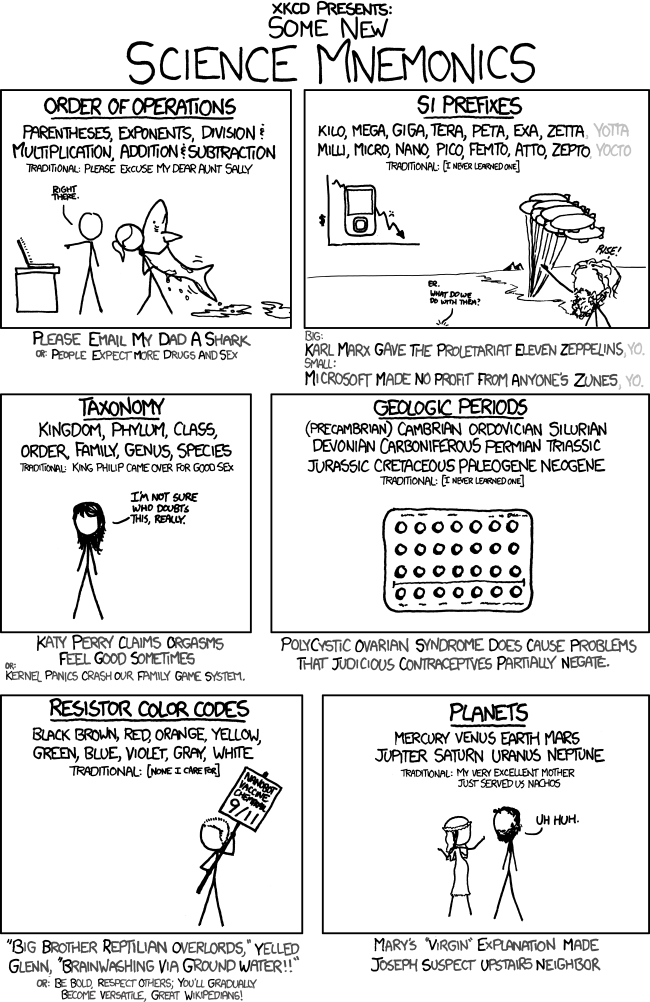Do we think people with majors in Economics, Psychology, and Business get a say?
-
“I learned about the solar system in fourth grade”
-
“I haven’t thought about it since then”
-
“The world revolves around
the sunME, it revolves around ME” -
“The solar system only exists on schoolroom posters and as a memory exercise for children”
-
“The arbitrary, meaningless information I learned in fourth grade must remain the same forever”
Here’s the MIT press release.
well I should hope so. The alternative would be alarming.
Engineer 1: Well, we’ve done it. We can scrub CO2 from the air, potententially solving the climate crisis.
Engineer 2: What’s the catch?
Engineer 1: Deployment can’t begin until emissions reach 1600 ppm…
Yeah, but that has been state of the art. Mind you, I see this as only a mitigation strategy - the amount of scaling up needed to compensate for current carbon emissions would be mind boggling. I also think they are understating the costs - this captures the carbon, but more (possibly much more) is needed to lock up the CO2 thus captured.
and, if you have an industrial source that needs scrubbing, concentrations can be a bit denser than the average.
This is where it might work, though. More CO2, more leaves to the battery stack. It sounds fairly linear.
Considering that they’ve been announcing discoveries of extrasolar planets, without knowing all of those details about them, it makes sense. Why have different standards? Doesn’t really matter though, it’s all pedantic whether you call it a planet, planetoid, dwarf planet, or leprechaun ball.
A bigger transgression was that in the Mutant Chronicles fiction, finding an alien artifact on Pluto was what started all the madness, but in the movie adaptation, they just accidentally blasted through to a buried vault right here on Earth and never even did anything with the other planets.
I think NASA should keep an open mind, and ask for a few billion to probe Eris–tabulate any similarities etc.
Unfortunately Eris is in the wrong part of the solar system,
The article says the polymer is layered on carbon nanotubes. Scaling that up seems really difficult.
Not necessarily. The thing modularises neatly. Need more capacity, add more leaves. The nanotubes aren’t particularly difficult to make, and they aren’t requiring something finicky like single walls, I gather.
all we need to know are masses and orbital periods, the math was done decades ago
Because as I’ve said above, the IAU has to keep track of literally a hundred thousand objects, so it’s extremely important to them to have some sort rules around their nomenclature? And terminology matters for conveying our understanding the solar system. And in this case, the choice they made is a well-reasoned one to reflect that understanding, one I could have recommended a decade earlier from the stuff I loved learning about what I was little. It in a very literal sense is telling you “hey look, there is more than just Pluto out there!”
And for the record, this is still close to what we know of extrasolar planets too. When you detect something by how it wobbles its star, that’s inherently something with an orbit cleared of anything similar. Things detected by eclipses can be less clear, and on rare occasion we’ve found a couple in the same orbit. But certainly none of them would be belt objects. Right now we see belts by infrared excess from the dust they generate; we are a long way from being able to find individual objects in them at all.
But of course this isn’t the point. After all, every single one of these stories has someone who says “well, then, there are no planets because none of them have cleared their orbits”. Which means every single one of these stories is based on someone who couldn’t be bothered to so much as understand the wikipedia entry on orbit clearing before sounding off. And then they all make side points like how Pluto has a moon, but they never mention Ida’s moon or Titan’s atmosphere or Triton’s origin or Makemake or Plutinos at all, because who cares about all that science stuff we’ve been discovering.
No, this is about American boomer nostalgia, the only thing other than money that’s still sacrosanct. And scientists didn’t respect that, so now instead of being excited about what we’re learning, we need to keep handwringing and pretending it’s somehow a mistake for the rest of the generation. I hate it so much.
tee hee.
I read a sci-fi story as a kid that centered around the inhabitants of a mining asteroid named Fred’s Ball. it wad not named after the discoverer, nor the mine owner, nor any of the miners themselves.
rather, it was named because, from space, it resembled Fred Flintstone’s bowling ball.
they’re not getting “my very educated mother just served us nine pizzas” back
I think I’ve forgotten the old and new mnemonics for geological periods. Except of course trustworthy Ediacaran, Cambrian, Ordovician, Silurian, Devonian, Carboniferous, Permian, Triassic, Jurassic, Cretaceous, Paleogene, Neogene, and in some versions Quaternary.
It would seem for the later generations, “my very educated mother just served us nuggets”
This is based on my siblings children who still - in that later 20s - find chicken nuggets a proper meal.
To me, Pluto is a planet.
Anything that spherical is a planet.

